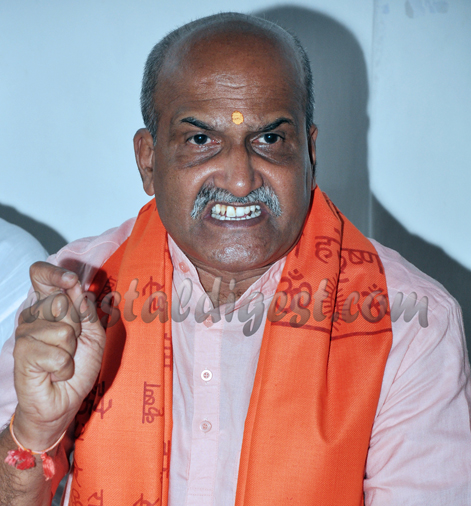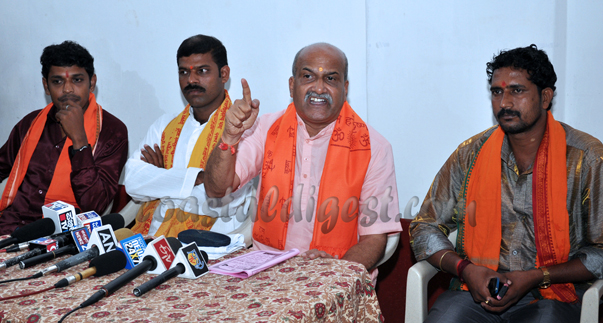
Mangalore, November 2: A day after the Board Of Control for Cricket In India (BCCI) announced the schedule of India – Pakistan series to be played in India, Sri Ram Sena chief Pramod Muthalik announced that he strictly would not allow the bilateral cricket series to take place under any circumstances.
Addressing media persons here on Friday, he said that the BCCI's selfish decision has put the nation's security at risk. “BCCI has taken such a decision only for selfish gains”, he reiterated.
“While the Home Ministry itself has established Pakistan as a direct source of terror activities, it is wrong to build friendly relations and mutual understanding with that country. We sternly condemn and oppose such a decision,” he said.
He alleged that out of 600 Pakistanis, who had entered India in 2007 to witness a similar series between the arch-rivals, 137 still remained in this country.
He said that despite this bitter experience once again welcoming “our foe” is dangerous and a risk to the country's security. If the decision is not called back, Sena will stage a massive protest on December 22 in Bangalore, he warned.
He maintained that friendly ties with Pakistan should be hacked as it was not only promoting terrorism but also indulged in activities such as engineering counterfeit currency and flesh-trade of Hindu girls.
The Pakistani cricket team is scheduled to arrive at Bangalore on December 22 for the bilateral series with India.
Dattatreya procession
Muthalik also demanded that the Datta Mala Abhiyana, annually organised by Sri Rama Sena at Datta Peetha (Bababudangiri), be allowed to take place this year on November 25.
From the past three years now, devotees have not been given permission by the authorities to take part in the annual procession. The cave shrine has been repaired already and made ready. In spite of several requests of allowing the Abhiyana to be undertaken by Dattatreya devotees, the “inefficient state government” has been unsuccessful in doing it, he said.
The Sena chief also accused Dakshina Kannada in-charge Minister C T Ravi of failing to keep his word that the devotees would be given a chance to continue the annual Datta Jayanthi Shobhayathre.
Warning the state government of resorting to intense measures, Muthalik said that his Sena would adopt a 'do or die' strategy. “If restricted, we will put up a fierce fight and will not hesitate to sacrifice our lives if necessary,” he warned.








Comments
Add new comment